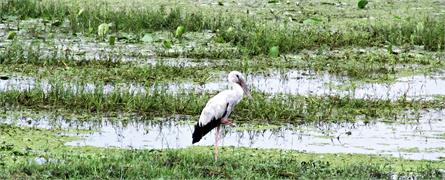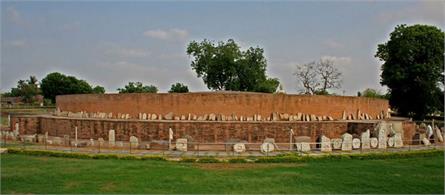Ashtamudi Wetland: Kerala's Natural Treasure

Ashtamudi Wetland is in the souther state of India, Kerala. This Ashtamundi Wetland is a natural treasure regarded for its ecological significance, unique biodiversity, and picturesque landscapes. This wetland is one of the most pristine and considerable in Kerala, making it a crucial a part of the state's wealthy natural heritage.
Ashtamudi Wetland is in Kollam district, around 71 kilometers north of the state capital, Thiruvananthapuram. It covers a place of approximately 61 rectangular kilometers, encompassing a complex community of estuaries, lakes, and backwaters. The wetland is mainly fed by means of the Kallada River, which flows into the Arabian Sea, forming a spell-binding labyrinth of interconnected water bodies.
Also Read: Ramsar Sites In India
Biodiversity of Ashtamudi Wetland
1. Flora
Ashtamudi Wetland is domestic to many aquatic species, such as mangroves, seagrasses, and submerged macrophytes. These plant life offer essential habitats and breeding grounds for various marine species.
2. Fauna
The wetland supports a rich biodiversity of aquatic and avian existence. It is an essential breeding and feeding ground for several fish species, crustaceans, and mollusks. Furthermore, Ashtamudi is known for its birdlife, attracting birdwatchers and nature enthusiasts. Bird species consisting of the Indian darter, kingfishers, herons, and egrets are commonly noticed right here.
3. Endangered Species
The severely endangered Indian white-rumped vulture, which is known to be on the verge of extinction, has also been sighted in the location of the wetland. The presence of this rare bird species highlights the ecological importance of Ashtamudi.
Also Read: Khijadia Wildlife
Ashtamudi Ramsar Site Designation:
The Ashtamudi wetland was designated as a Ramsar site on 19 August 2002. It covers an area of 6,140 hectares.The site is home to a variety of mangroves, over 40 associated plant species, and 57 bird species, including 6 migratory species. The fishing industry is strong, with about 100 species supporting thousands of fishermen.
Environmental importance of Ashtamudi wetlands:
Aquatic ecosystems play an important role in the overall environmental balance of the region. It acts as a natural filtering system, purifying runoff into the ocean and acting as a coastal erosion preventative. In addition, mangrove forests found in the wetlands help protect the coastline and provide habitat for marine species.
Tourism and Leisure:
Ashtamudi Falls is not only a natural wonder but also a popular tourist attraction. Visitors can explore the canals in a variety of ways, including houseboat tours, canoeing, and canoe trips. The tranquil backwaters, lush greenery, and diverse birdlife offer a unique and peaceful experience.
Conservation Efforts:
Several conservation efforts have been initiated to protect the unique ecology of the Ashtamudi wetlands. The Government of Kerala and local communities and environmental organizations have implemented measures to curb pollution, illegal fishing, and other activities that can damage wetlands and promote sustainable tourism practices to ensure the long-term preservation of this natural treasure.








